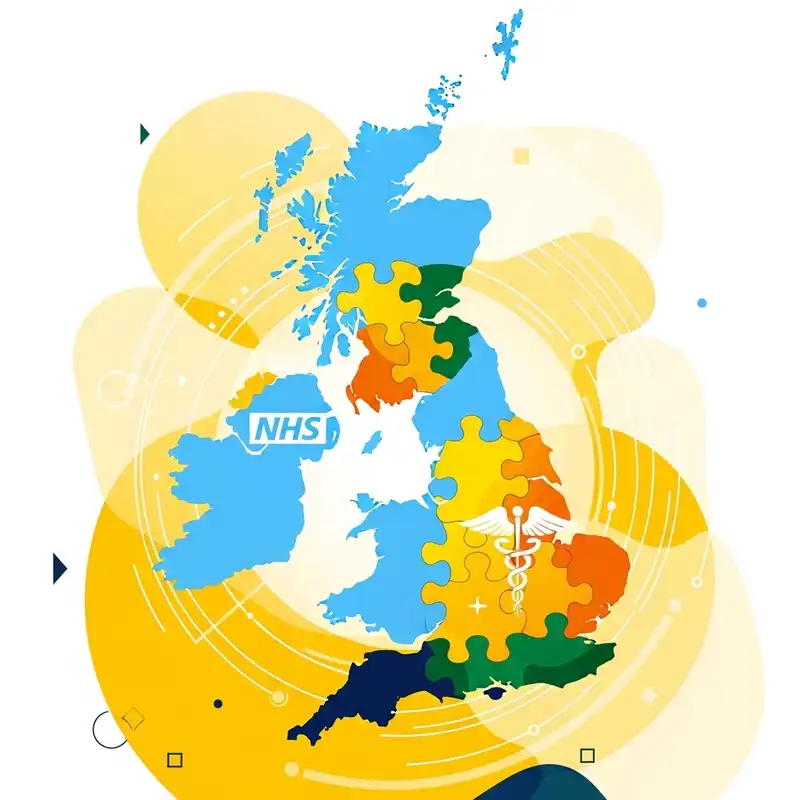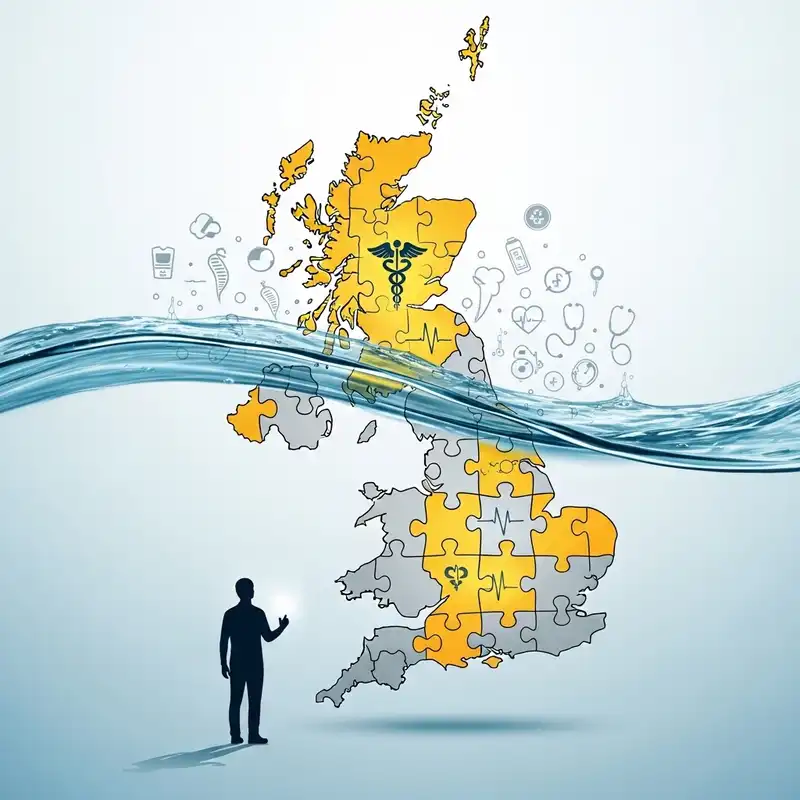TL;DR
Navigating the world of personal protection can feel like trying to read a map in the dark. With so many different products, terms, and options, it's easy to feel overwhelmed. Yet, securing your financial future, and that of your loved ones, is one of the most important steps you can take.
Key takeaways
- Life Insurance acts as the foundation, protecting your dependants after you're gone.
- Critical Illness Cover provides a financial boost to handle the immediate and significant costs of a serious diagnosis.
- Income Protection is your ongoing defence, replacing your salary month after month if you're unable to work.
- Term Life Insurance: This is the most common and affordable type. It covers you for a fixed period (the "term"), such as 25 years to match your mortgage.
- Level Term: The payout amount remains the same throughout the term. Ideal for covering an interest-only mortgage or providing a lump sum for your family's future.
Navigating the world of personal protection can feel like trying to read a map in the dark. With so many different products, terms, and options, it's easy to feel overwhelmed. Yet, securing your financial future, and that of your loved ones, is one of the most important steps you can take. The peace of mind that comes from knowing you're protected against life's biggest "what ifs" – serious illness, being unable to work, or death – is invaluable.
The truth is, there isn't a single "best" policy. The best protection is a strategy – a carefully constructed combination of policies that work together to create a comprehensive financial safety net. Relying on just one type of cover can leave dangerous gaps. This is where the real power lies: in understanding how Life Insurance, Critical Illness Cover, and Income Protection can be layered to shield you from every angle.
WeCovr shows how to combine policies for maximum peace of mind
At WeCovr, we believe that financial protection shouldn't be a puzzle. It should be a fortress. Building that fortress means moving beyond a single-policy mindset and adopting a holistic approach. Think of it not as buying one product, but as assembling your personal protection portfolio.
- Life Insurance acts as the foundation, protecting your dependants after you're gone.
- Critical Illness Cover provides a financial boost to handle the immediate and significant costs of a serious diagnosis.
- Income Protection is your ongoing defence, replacing your salary month after month if you're unable to work.
When combined thoughtfully, these three pillars support each other, ensuring that no matter what life throws at you, you and your family have the financial resources to cope. In this guide, we'll break down each element and show you exactly how to build a protection strategy that delivers true peace of mind.
Understanding the Core Three: Life, Critical Illness, and Income Protection
Before we dive into combination strategies, let's clarify what each of these core policies does. They each serve a unique purpose and are triggered by different life events.
| Protection Type | Pays Out When... | How It Pays Out | Primary Purpose |
|---|---|---|---|
| Life Insurance | You pass away or are diagnosed with a terminal illness (typically <12 months to live). | A single, tax-free lump sum. | To support your dependants, clear debts like a mortgage, and cover funeral costs. |
| Critical Illness Cover | You are diagnosed with a specific, serious illness listed in the policy. | A single, tax-free lump sum. | To cover major costs during recovery, such as medical bills, home adaptations, or paying off debts. |
| Income Protection | You are unable to work due to almost any illness or injury, after a set waiting period. | A regular, tax-free monthly income. | To replace your lost salary and cover your day-to-day living expenses. |
Demystifying Life Insurance
At its heart, life insurance is a promise. It's a contract with an insurer that says if you die during the policy term, they will pay a cash sum to the people you leave behind (your beneficiaries). This money can be a lifeline, ensuring your family can maintain their standard of living without your income.
Key Types of Life Insurance:
- Term Life Insurance: This is the most common and affordable type. It covers you for a fixed period (the "term"), such as 25 years to match your mortgage.
- Level Term: The payout amount remains the same throughout the term. Ideal for covering an interest-only mortgage or providing a lump sum for your family's future.
- Decreasing Term: The payout amount reduces over time, usually in line with a repayment mortgage or other loan. This makes it a cheaper option.
- Family Income Benefit: A variation of term insurance. Instead of a single lump sum, it pays out a regular, tax-free income to your family until the end of the policy term. This can be easier for budgeting and replaces your lost salary in a more direct way.
- Whole of Life Insurance: This policy has no end date. It covers you for your entire life and is guaranteed to pay out whenever you die. It's often used for covering funeral expenses or for inheritance tax planning.
Who needs it? If anyone relies on you financially – a partner, children, or even ageing parents – life insurance is a must-have. With the average UK mortgage debt for first-time buyers standing at over £200,000 in recent years, life cover is essential to ensure your loved ones aren't left with a crippling debt.
Critical Illness Cover Explained
Whilst it’s unsettling to think about, the statistics are stark. According to Cancer Research UK, 1 in 2 people in the UK will be diagnosed with some form of cancer in their lifetime. A critical illness diagnosis is emotionally devastating, but it can also be financially catastrophic. This is where Critical Illness Cover (CIC) steps in. (illustrative estimate)
CIC pays out a tax-free lump sum if you are diagnosed with one of a list of predefined serious conditions. The "big three" covered by almost every policy are:
- Cancer (of a specified severity)
- Heart Attack
- Stroke
Most comprehensive policies today cover 50+ conditions, and some even extend to over 100, including conditions like multiple sclerosis, kidney failure, and major organ transplant.
The money can be used for anything, providing crucial financial breathing space during a difficult time. Common uses include:
- Clearing or reducing a mortgage.
- Paying for private medical treatment or specialist therapies not available on the NHS.
- Adapting your home (e.g., installing a ramp or stairlift).
- Allowing your partner to take time off work to care for you.
- Simply replacing lost income while you focus on getting better.
The Essential Guide to Income Protection
Often described by financial experts as the most important protection policy of all, Income Protection (IP) is the bedrock of any solid financial plan. It does one thing, and it does it brilliantly: it pays you a regular income if you're unable to work due to illness or injury.
Think about it: your ability to earn an income is your biggest asset. It pays for your home, your food, your holidays – everything. If that income suddenly stopped due to sickness, how long could you cope? For many, the answer is "not long".
Statutory Sick Pay (SSP) in the UK is just £116.75 per week (for 2024/25) and is only paid for a maximum of 28 weeks. This is rarely enough to cover even the most basic household bills. (illustrative estimate)
How Income Protection Works:
- Cover Amount: You choose to cover a percentage of your gross salary, typically between 50% and 70%.
- Deferred Period: This is the waiting period before the payments start. It can be anything from 1 day to 52 weeks. The longer the deferred period you choose, the lower your monthly premium. A common choice is 13 weeks, to coincide with when employer sick pay might run out.
- Payment Term: You decide how long the policy will pay out for. This can be a short term (e.g., 1, 2, or 5 years) or, more comprehensively, right up until your chosen retirement age.
Unlike Critical Illness Cover, which only pays for specific conditions, Income Protection can cover almost any medical reason that stops you from working, from a bad back or mental health condition to cancer or a stroke.
The Power of Combination: Crafting Your Protection Strategy
Now that we understand the individual components, let's explore why combining them is so powerful. A well-structured package provides multi-layered defence against financial hardship.
The Classic Combination: Life Insurance with Critical Illness Cover
This is the most common protection pairing in the UK. Insurers often sell a combined policy where you get both life and critical illness cover under one plan.
How it typically works: This is usually "accelerated" cover. This means the policy pays out once – either on diagnosis of a qualifying critical illness or on death, whichever happens first.
- Benefit: It's more affordable than buying two separate policies and simplifies the application process.
- Drawback: If you claim for a critical illness, the life cover is used up. There would be no further payout if you passed away later.
Real-Life Example:
- Client (illustrative): David, 40, is a graphic designer with a wife, two young children, and a £300,000 mortgage.
- Policy (illustrative): He takes out a combined, accelerated Life and Critical Illness policy for £300,000 over a 25-year term.
- Scenario: At age 48, David suffers a severe heart attack. The policy pays out the £300,000 sum. He and his wife use it to clear their mortgage completely, removing their single biggest financial worry.
- Outcome: David can focus on his recovery without financial stress. However, because the policy has paid out, his life cover is now gone. He may need to consider new life insurance once he recovers, which could be more expensive.
An alternative, "additional cover," keeps the life and critical illness pots separate. If you claimed on the critical illness element, the full life cover would remain in place. This is more expensive but offers more comprehensive protection. An expert adviser at WeCovr can help you weigh the costs and benefits to decide which is right for you.
The Ultimate Safety Net: Adding Income Protection to the Mix
For truly robust protection, adding Income Protection to a Life and Critical Illness plan creates the ultimate financial shield. The two types of payout (lump sum and regular income) serve different but complementary purposes.
- The Critical Illness lump sum is your "shock absorber." It deals with the big, immediate financial hits: clearing the mortgage, paying for private care, or adapting the house.
- The Income Protection monthly payments are your "day-to-day defence." They replace your salary and ensure the bills, groceries, and regular outgoings are covered, month after month, for as long as you need.
Real-Life Example:
- Client (illustrative): Chloe, 35, is a self-employed solicitor earning £60,000 per year. She has no employer sick pay.
- Her Protection Portfolio:
- Decreasing Term Life & CIC (illustrative): £250,000 to cover her mortgage.
- Income Protection (illustrative): To pay out £3,000 per month (£36,000 per year, or 60% of her gross income) after a 13-week deferred period, paying until she is 67.
- Scenario: Chloe is diagnosed with multiple sclerosis. While it's a defined critical illness, she is still able to work part-time for another two years. After that, her condition worsens, and she has to stop working completely.
- Outcome:
- Critical Illness Payout (illustrative): On diagnosis, she receives the £250,000 lump sum. She uses £200,000 to pay off the majority of her mortgage and puts £50,000 aside for future needs, like specialist equipment or home help.
- Income Protection Payout (illustrative): Two years later, when she stops work, her IP policy kicks in after the 13-week deferred period. She starts receiving £3,000 tax-free every month. This income allows her to live comfortably and maintain her independence without worrying about daily bills. The policy will continue to pay until she turns 67 if she can never return to work.
This combined approach ensures that both the immediate financial shock and the long-term income loss are fully covered.
Specialist Protection: Solutions for Business Owners and the Self-Employed
If you work for yourself or run your own company, your financial vulnerability to illness is significantly higher. There's no safety net of employer sick pay, and the success of the business often rests squarely on your shoulders. Thankfully, there are specialist protection products designed for you.
Income Protection: The Non-Negotiable for Freelancers and Sole Traders
For anyone self-employed, Income Protection isn't a luxury; it's an essential business overhead. It is your sick pay. When choosing a policy, pay close attention to the "definition of incapacity":
- Own Occupation: This is the gold standard. The policy will pay out if you are unable to perform the specific duties of your own job. For a surgeon, a pianist, or a specialist tradesperson, this is vital.
- Suited Occupation: Pays out if you can't do your own job or a similar one based on your skills and experience.
- Any Occupation: The most basic definition. Only pays out if you are so ill you cannot perform any kind of work. This should generally be avoided.
For those in riskier jobs like tradespeople, nurses, or electricians, who may be more susceptible to short-term injuries, a Personal Sick Pay policy can be a good option. These are a form of IP, often with shorter payment periods (1 or 2 years) and shorter deferred periods (sometimes just one day), designed to cover short-to-medium term absences.
For Company Directors: Beyond Personal Cover
If you're a director of a limited company, you can arrange protection in a more tax-efficient way by having the company pay the premiums.
- Executive Income Protection: This is an Income Protection policy owned and paid for by your limited company. The premiums are typically an allowable business expense, and the benefit is paid to the company, which then distributes it to you via PAYE. It's a highly tax-efficient way to secure your income.
- Key Person Insurance: What would happen to your business if you, or another vital employee, were to die or become critically ill? Key Person Insurance is designed to protect the business itself. The policy pays a lump sum to the company to cover costs like lost profits, recruiting a replacement, or repaying business loans.
- Relevant Life Cover: This is a tax-efficient death-in-service benefit for directors and employees. The company pays the premiums (which are a business expense), and if the individual dies, the payout goes directly to their family via a trust, completely free of income tax, national insurance, and inheritance tax. It's a fantastic alternative to a personal life insurance policy for company directors.
Inheritance Tax (IHT) Planning with Gift Inter Vivos Insurance
For successful individuals and business owners looking at estate planning, a Gift Inter Vivos policy is a clever tool. When you gift a large sum of money or an asset, it is still considered part of your estate for Inheritance Tax purposes for 7 years. If you were to die within that period, your beneficiaries could face a large IHT bill on the gift.
This type of insurance is a specific life policy designed to cover that potential tax liability. It's a decreasing term plan where the sum assured reduces over the 7 years, mirroring the tapering IHT liability on the gift.
How Much Cover Do I Really Need? A Practical Calculation
Determining the right amount of cover is crucial. Too little leaves you exposed; too much means you're overpaying on premiums.
Calculating Your Life Insurance Needs
A simple way to estimate this is to think about clearing all debts and replacing your income for a set period.
| Financial Need | Calculation / Consideration | Your Estimate (£) |
|---|---|---|
| Mortgage & Debts | Your outstanding mortgage + any car loans, credit cards etc. | |
| Family Living Costs | Your annual take-home pay x the number of years your family needs support (e.g., until youngest child is 21). | |
| Future Education | Estimated cost of university fees or private schooling for your children. | |
| Funeral Costs | The average UK funeral cost is around £4,000-£5,000, but can be higher. | |
| Total Life Cover Needed | Sum of the above |
Sizing Your Critical Illness Cover
There are two main schools of thought here:
- Cover Your Mortgage: Your primary goal is to clear the biggest debt, removing the main financial pressure during recovery.
- Cover Your Salary: Aim for a lump sum equivalent to 1-3 years of your net salary. This gives you a significant buffer to use as you see fit.
The right answer is often a blend of the two, ensuring major debts are handled and there's a cash fund for other needs.
Determining Your Income Protection Amount
This is more straightforward:
- Start with your gross (pre-tax) annual income.
- Calculate 60-65% of this figure. This is the maximum amount most insurers will cover.
- Consider your deferred period. Look at your savings and any employer sick pay. If you have 3 months of savings, a 13-week (3-month) deferred period makes sense. A longer period will lower your premium.
- Choose your payment term. For the most robust cover, select a term that pays out right up until your planned retirement age (e.g., 67).
WeCovr's Top Tips for Getting the Best Value and Coverage
-
Be Honest and Thorough: When applying, you must disclose your full medical history. Non-disclosure is the primary reason claims are denied. Being upfront ensures your policy is valid when you need it most.
-
Review Your Cover Regularly: Life doesn't stand still. Getting married, having children, moving house, or getting a pay rise are all key moments to review your protection and ensure it's still fit for purpose.
-
Place Your Policy in Trust: This is one of the most important yet overlooked steps for life insurance. Placing your policy in trust is a simple legal arrangement that ensures the payout goes directly to your chosen beneficiaries, bypassing the lengthy probate process and usually falling outside your estate for Inheritance Tax purposes. Most insurers offer this service for free.
-
Look Beyond the Premium: The cheapest policy is rarely the best. Pay attention to the details, especially the definitions for Critical Illness Cover and Income Protection. Check the insurer's claim payout statistics – the Association of British Insurers (ABI) reported that 96.9% of all protection claims were paid in 2023, a testament to the industry's reliability. A broker like us can help you compare these crucial details.
-
Embrace Wellness: Proactive health is your first line of defence. Many insurers now offer value-added benefits like discounted gym memberships, free health checks, and mental health support. At WeCovr, we believe in supporting our customers' wellbeing beyond just the policy. That's why we provide our customers with complimentary access to our AI-powered calorie tracking app, CalorieHero, to help them on their health journey.
-
Don't Delay: Protection insurance is priced based on your age and health at the time of application. The younger and healthier you are, the cheaper your premiums will be for the entire life of the policy. Procrastination literally costs you money.
The WeCovr Advantage: Why Use an Expert Broker?
Trying to navigate the protection market alone can be a false economy. The landscape is complex, and the details matter immensely. Using an independent expert adviser like WeCovr gives you a significant advantage.
- Whole-of-Market Access: We are not tied to a single insurer. We compare policies, features, and prices from across the entire UK market to find the perfect fit for your unique circumstances.
- Expert Guidance: We translate the jargon and explain the small print. We help you understand the crucial differences between policies and craft a combined strategy that leaves no gaps.
- Application Support: We guide you through the application process, ensuring it's completed accurately to give you the best chance of getting cover on standard terms and ensuring any future claim is paid smoothly.
- Trust and Claims Support: Our service doesn't end when the policy starts. We provide expert assistance with setting up trusts and are here to support your family and advocate on their behalf should they ever need to make a claim.
Conclusion: Building Your Financial Fortress
Your financial health is just as important as your physical health. Creating a robust protection strategy by combining Life Insurance, Critical Illness Cover, and Income Protection is the most effective way to build a financial fortress around you and your family.
This isn't about being pessimistic; it's about being pragmatic. It’s about taking control and ensuring that if the worst should happen, financial worries are the last thing on your mind. The right combination of cover provides a lump sum to handle major shocks and a steady income to manage daily life, giving you a comprehensive shield against uncertainty.
The path to financial security is unique for everyone. Don't leave your family's future to chance. Speak to an expert at WeCovr today for a no-obligation review of your protection needs and let us help you build the peace of mind you deserve.
Frequently Asked Questions (FAQs)
Can I get cover if I have a pre-existing medical condition?
Is the payout from these policies taxable?
What's the difference between "reviewable" and "guaranteed" premiums?
Reviewable premiums are usually cheaper to begin with, but the insurer has the right to review and increase them at set intervals (e.g., every 5 years). They may increase due to factors like your age or claims trends. Whilst cheaper initially, they can become much more expensive over time. For long-term planning, guaranteed premiums are often the preferred choice.
How long should my policy term be?
- For Life and Critical Illness Cover: The term should typically last until your major financial responsibilities have ended. This is often until your mortgage is paid off and/or your children are financially independent (e.g., age 21 or 25).
- For Income Protection: The most comprehensive cover will have a term that runs right up to your planned retirement age (e.g., 65 or 67), ensuring your income is protected throughout your entire working life.
Do insurers actually pay out?
What is Family Income Benefit?
Sources
- Office for National Statistics (ONS): Mortality, earnings, and household statistics.
- Financial Conduct Authority (FCA): Insurance and consumer protection guidance.
- Association of British Insurers (ABI): Life insurance and protection market publications.
- HMRC: Tax treatment guidance for relevant protection and benefits products.

































